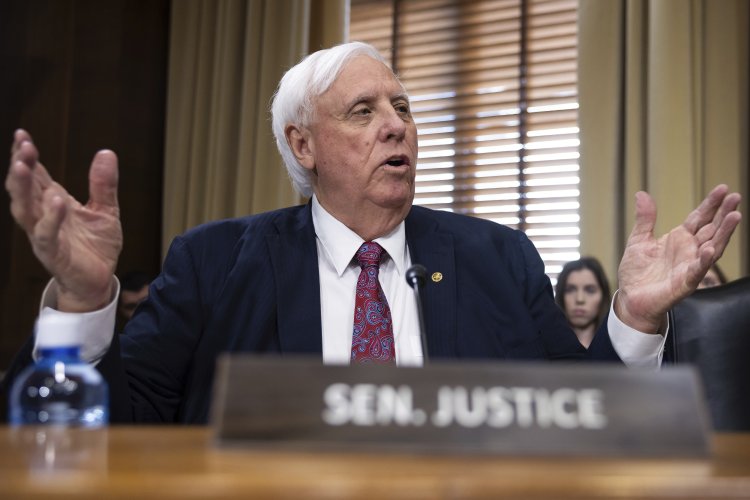GOP Aims to Transfer Safety-Net Expenses to States, Meeting Resistance
The proposals have the potential to yield significant savings; however, they are causing frustration among Republican lawmakers, many of whom are former governors and state legislators.

The proposals currently being considered could lead to savings in the hundreds of billions of dollars, which would help fund the GOP’s expansive domestic policy initiative. However, this approach is causing concern among Republican lawmakers—many of whom have past experience as governors and state legislators—who are reluctant to alleviate Washington’s fiscal challenges at the expense of their own states.
This situation is a significant factor behind the challenges Speaker Mike Johnson and Senate Majority Leader John Thune face as they attempt to create a consensus around the “big, beautiful bill.” This comprehensive legislation includes substantial tax cuts, along with increases in border security and defense spending. Already, they are revising their initial proposals, which would have required states to subsidize health and food aid or remove thousands of individuals from benefit eligibility.
“Most of us are not interested in simply shifting costs,” remarked Sen. Mike Rounds, a former governor, cautioning that “there most certainly would” be considerable opposition from states if the GOP moves forward with these cost-sharing initiatives.
“I hope to goodness we don’t go there,” expressed Sen. Jim Justice, another ex-governor, highlighting the dependence of his constituents on federal programs.
The financial rationale for these GOP proposals is clear: the tax cuts favored by President Donald Trump and Republican leaders could amount to over $5 trillion in costs over the next decade. Addressing this expense means more than simply gathering loose change, leading to the consideration of two significant safety-net programs as potential targets for cuts.
Together, Medicaid and the Supplemental Nutrition Assistance Program (formerly food stamps) account for approximately $1 trillion in annual federal spending. Republicans largely agree on measures to impose work requirements, tighten eligibility verification, exclude undocumented immigrants from benefits, and combat waste, fraud, and abuse. However, to achieve even further reductions, they are contemplating shifting more financial responsibility to the states.
Medicaid has been a partnership between federal and state governments since its inception during the Great Society era. The program's expansion under the Affordable Care Act in 2010 placed 90 percent of the costs for newly eligible beneficiaries on the federal government. Meanwhile, states have not been responsible for covering the costs of SNAP benefits, although they do manage some administrative expenses.
Some House GOP proposals currently being evaluated would require states to cover a larger share of the costs for the Medicaid expansion population and, for the first time, assume part of the costs associated with SNAP benefits. Additionally, Republicans are assessing whether to limit the health provider taxes that states often use to fund their Medicaid expenses.
This strategy could transfer hundreds of billions of dollars to state budgets that are already facing challenges due to the conclusion of federal pandemic aid and other fiscal adjustments initiated during the Trump administration. For instance, California is bracing for a minimum budget shortfall of $10 billion for the fiscal year beginning July 1, 2024, a figure projected to triple by 2026.
According to the National Association of State Budget Officers, Medicaid constitutes more than half of all federal funding to states. Brian Sigritz, the organization’s director of state fiscal studies, noted that states will face the necessity of either increasing taxes, cutting benefits, or eliminating other programs due to these budgetary changes. He emphasized that the impact will be “cumulative.”
“It’s clear states won’t be able to absorb the federal cuts and cost shifts in recent federal actions and congressional proposals,” Sigritz stated. He added that “States are required to balance their budget, and states won’t be able to fill in the gap.”
Republicans have focused much of their criticism on Democratic-led states, claiming they mismanage these two programs. However, millions of low-income families in Republican states also depend on these programs for healthcare and food support, and some Republican proposals could disproportionately affect deep-red states, including adjustments to the SNAP state-cost share plan.
This reality has sparked backlash within the GOP, as many members in the House and Senate are firmly against any initiatives that would result in benefit cuts. They are willing to consider work requirements and other minor changes, but resist altering the fundamental responsibilities of the federal government.
Rep. David Valadao, a Republican facing a competitive re-election in 2026 and a former state legislator, has been critical of California’s fiscal management but is cautious about increasing financial burdens on states like his own.
“California has kind of blown it on some of these fronts,” Valadao acknowledged, describing how this predicament complicates his role as a representative from the state.
Rep. Derrick Van Orden raised concerns during a closed-door GOP conference about how the proposed SNAP changes would impact Wisconsin's budget, highlighting that there were many House Republicans present from states likely to be significantly affected.
GOP leaders have already toned down some of their more ambitious proposals. Initially, the House Agriculture Committee considered a plan for states to assume a 25 percent share of SNAP costs; the revised proposal now starts at 10 percent for states with the lowest overpayment rates. “No one likes this,” commented one Republican, granted anonymity to share private thoughts within the party, “but we need to reach these cuts.”
Regarding Medicaid, Speaker Johnson indicated on Tuesday that cutting the federal reimbursement rate would be off the table, and suggested that an alternative such as per-capita caps on federal reimbursements would similarly be excluded.
Nonetheless, other strategies—such as restricting state provider taxes—remain under consideration, and so far, pushback from within the House GOP has been relatively muted. In the Senate, however, there is significant distaste for the idea of shifting substantial new financial responsibilities to states. Conversations about scaling back federal support for certain Medicaid beneficiaries took place at a party retreat on Wednesday, according to two senators who spoke on the condition of anonymity.
Sen. Thom Tillis, who previously held a state House position, has cautioned against surprising states with Medicaid changes, announcing his intention to reach out to his home state’s legislature concerning impending proposals. Similarly, Sen. Kevin Cramer, another state government veteran, emphasized that while shifting costs might make federal budgets appear healthier, it nonetheless represents a significant burden for states.
Senate Agriculture Chair John Boozman expressed concern regarding cost-sharing for food aid and said that his committee is not pursuing that option. Sen. John Hoeven, who frequently collaborates with House Agriculture Chair G.T. Thompson, was skeptical about the House’s commitment to these changes: “I’d put that in the category of, let’s actually see if they do it.”
New mandates for cost-sharing could saddle GOP-dominated states, including Alaska, West Virginia, Mississippi, Louisiana, Oklahoma, Alabama, and Florida, with multi-billion-dollar annual expenses—forcing state officials to make challenging decisions about their own political futures. Even White House officials have expressed concerns about a potential “one-two punch” for red states, causing many in the GOP to be more favorable toward less drastic measures, such as work requirements.
“I think the politics of work are a lot lighter burden to carry than just pushing off some of the costs to the states,” said Sen. John Cornyn.
Emily Johnson for TROIB News












